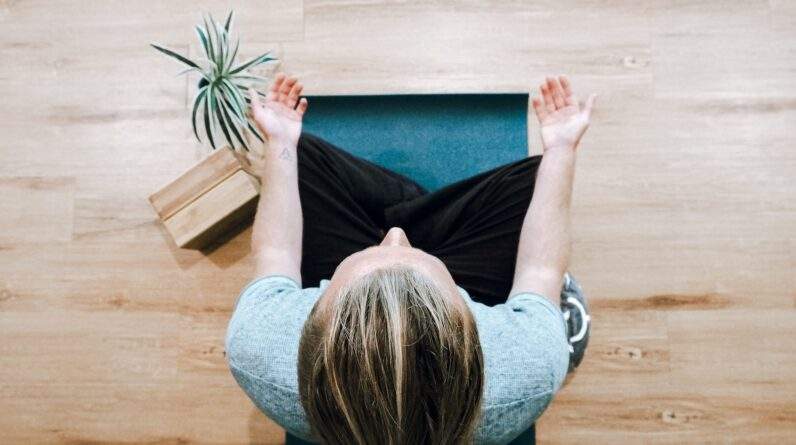
Are you feeling overwhelmed by the constant chatter in your mind? Discover the power of simplicity and unlock mental clarity with minimalist practices. By streamlining your thoughts and letting go of mental clutter, you can create space for greater focus and productivity. This article dives into research-based techniques that will help you cultivate a minimalist mindset, allowing innovation to thrive. Get ready to declutter your mind and experience newfound clarity and focus like never before.
The Power of Simplicity
You’ll be amazed at how simplicity can transform your mindset and bring about mental clarity and focus. Embracing mindfulness and finding peace within chaos are essential in today’s fast-paced world. Research shows that simplifying your life can have profound effects on your overall well-being.
Innovative individuals understand the importance of decluttering their minds to streamline their thoughts and enhance productivity. By embracing minimalism, you create an environment that promotes calmness and reduces distractions. This allows you to focus on what truly matters, leading to increased creativity and problem-solving abilities.
Studies have revealed that a cluttered environment can contribute to stress, anxiety, and decreased cognitive function. Conversely, a simplified space promotes relaxation and improves cognitive performance. When you eliminate unnecessary physical possessions or mental burdens, you free up mental energy for more important tasks.
By adopting minimalist practices, you learn to let go of attachment to material possessions or negative thoughts. This empowers you to live in the present moment and make conscious choices rather than being overwhelmed by external factors or worries about the future.
As we delve further into streamlining your thoughts, it becomes evident that simplicity is not just about decluttering physically but also mentally.
Streamlining Your Thoughts
Clearing out the excess noise in your head can help you streamline your thoughts and improve mental focus. Mindfulness techniques and cognitive restructuring are two effective approaches to achieve this clarity. Mindfulness involves being fully present in the moment, paying attention to your thoughts without judgment or attachment. By practicing mindfulness, you can observe your thoughts more objectively and let go of unnecessary distractions.
Cognitive restructuring is another powerful tool for streamlining your thoughts. It involves identifying and challenging negative or unhelpful thinking patterns that may be cluttering your mind. By replacing these negative thoughts with more positive and constructive ones, you can create a mental environment that fosters focus and productivity.
Research has shown that both mindfulness techniques and cognitive restructuring can have significant benefits for improving mental clarity and focus. They help reduce anxiety, increase self-awareness, enhance problem-solving abilities, and promote overall well-being.
Letting Go of Mental Clutter
Now that we’ve learned how to streamline our thoughts, it’s time to delve into the process of letting go of mental clutter. Embracing mindfulness and overcoming mental distractions are key practices in achieving mental clarity and focus. Here are three effective strategies to help you let go of mental clutter:
- Practice Mindful Meditation: Take a few minutes each day to sit quietly, focusing on your breath and observing your thoughts without judgment. This practice helps you become aware of your mental clutter and allows you to let go of unnecessary thoughts.
- Prioritize and Declutter Your Tasks: Make a list of tasks and prioritize them based on their importance and urgency. By decluttering your tasks, you can focus on what truly matters, reducing mental load.
- Digital Detox: Limit your screen time by taking regular breaks from technology. Constant notifications and information overload can overwhelm the mind. Disconnecting from digital distractions allows you to create space for clarity.
Creating Space for Clarity
To create space for clarity, it’s important to eliminate unnecessary distractions and create a peaceful environment. In today’s fast-paced world, our minds are constantly bombarded with information and stimuli that can hinder our ability to focus and think clearly. Mindful meditation and digital detox are two practices that can help us declutter our minds and create the mental space we need for greater clarity and focus.
Mindful meditation is a practice that involves bringing your attention to the present moment without judgment. It helps calm the mind, reduce stress, and improve concentration. By setting aside just a few minutes each day for mindful meditation, you can cultivate a sense of inner peace and clarity.
A digital detox involves taking a break from technology by disconnecting from devices such as smartphones, tablets, and computers. Research has shown that excessive screen time can lead to decreased productivity, increased stress levels, and reduced cognitive function. By intentionally carving out time away from screens, you give your mind the opportunity to rest and recharge.
Cultivating Focus Through Minimalism
By embracing a minimalist lifestyle, you can simplify your surroundings and create an environment conducive to increased focus and productivity. Mindful living is the key to cultivating focus through minimalism. Here are three ways in which this approach can help you declutter your mind and enhance your ability to concentrate:
- Prioritize what truly matters: Simplifying priorities allows you to allocate your time and energy towards activities that align with your goals and values. By eliminating nonessential tasks and distractions, you can streamline your daily routine and free up mental space for more important endeavors.
- Create a minimalist workspace: Your physical environment greatly impacts your ability to stay focused. Minimize visual clutter by keeping only essential items on your desk. Opt for neutral colors, clean lines, and uncluttered surfaces to promote a calm and clear mindset.
- Practice digital minimalism: In today’s digital age, it’s easy to become overwhelmed by information overload. Take control of your online presence by curating a mindful digital life. Unsubscribe from unnecessary emails, declutter your social media feeds, and limit the time spent on digital devices.
Frequently Asked Questions
How Does Decluttering Your Mind Through Minimalist Practices Affect Your Overall Well-Being?
Decluttering your mind through minimalist practices can greatly improve your overall well-being. By prioritizing mindfulness and embracing simplicity, you create space for mental clarity and focus, leading to reduced stress and increased productivity.
What Are Some Practical Tips for Incorporating Minimalist Practices Into Your Daily Routine?
To incorporate minimalist practices into your daily routine, try simplifying your relationships by focusing on quality over quantity. Embrace minimalist approaches to decision making by setting clear priorities and eliminating unnecessary choices.
Can Decluttering Your Mind Lead to Increased Productivity and Efficiency?
Decluttering your mind can indeed lead to increased focus and improved time management. By eliminating mental distractions, you can prioritize tasks more effectively and achieve greater productivity and efficiency in your daily life.
How Can Minimalism Help in Reducing Stress and Anxiety?
Minimalism can help reduce stress and anxiety by simplifying your life. By eliminating excess possessions, commitments, and distractions, you create a calm and focused environment that promotes mental well-being. Embracing a minimalist lifestyle has numerous benefits for your mental health.
Are There Any Specific Exercises or Techniques That Can Help in Decluttering the Mind and Improving Mental Clarity?
To declutter your mind and improve mental clarity, try mindfulness exercises and meditation techniques. These practices can help you focus, reduce stress, and increase self-awareness, leading to a more balanced and peaceful state of mind.




